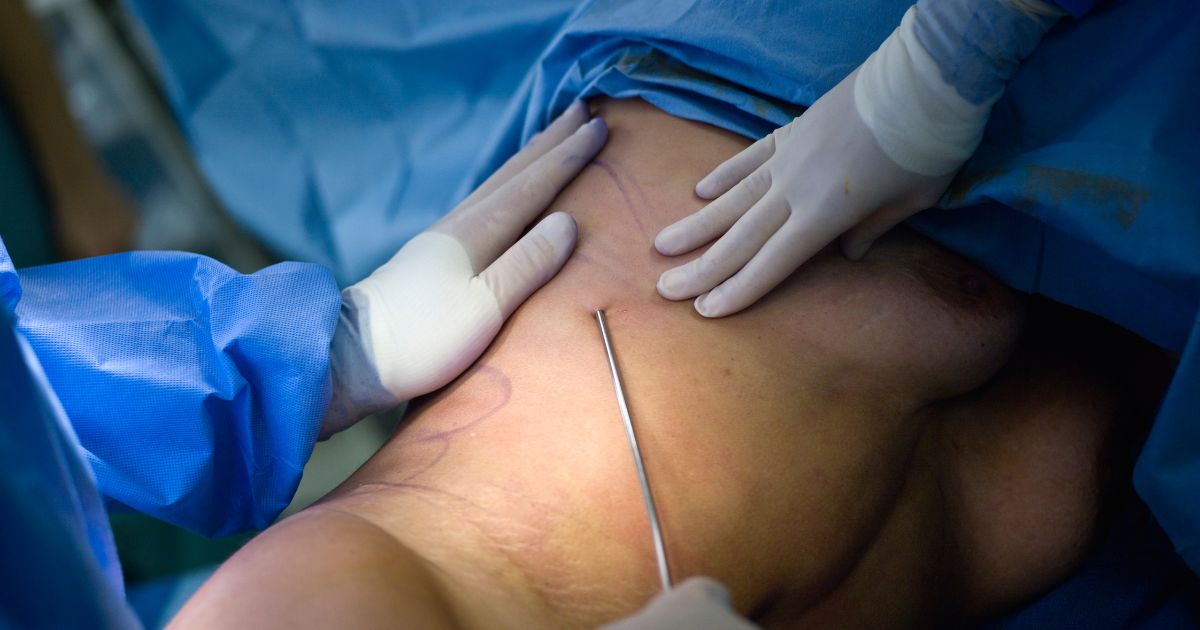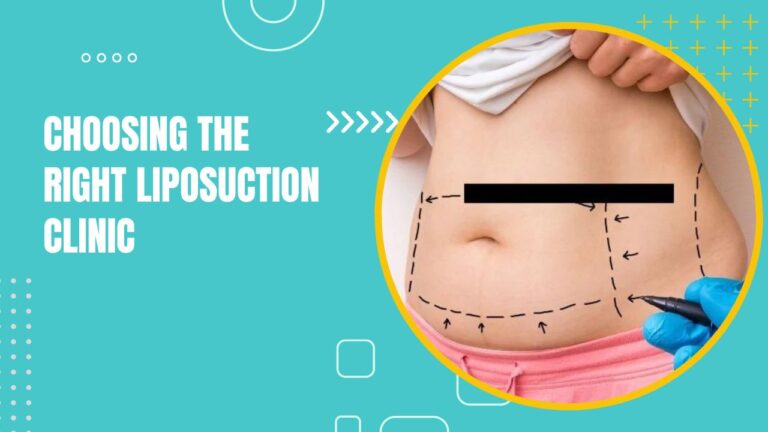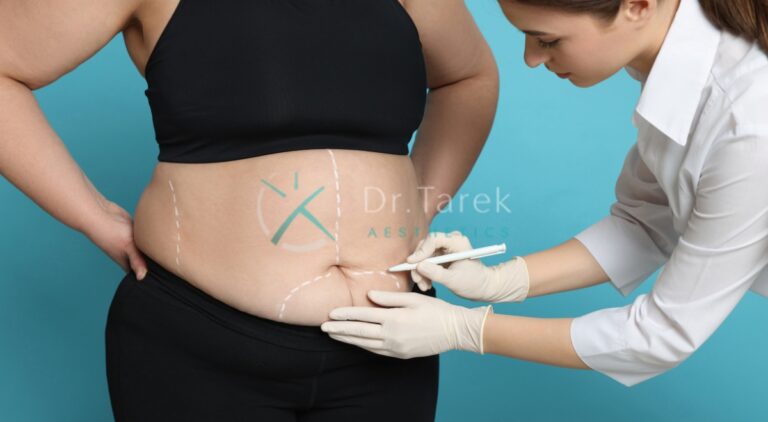Liposuction is one of the most sought-after cosmetic surgeries worldwide. However, many considering the fat reduction procedure harbour worries – can liposuction damage organs? It is a valid concern. While advancing technology and surgical skill levels have made liposuction safer, risks still exist. In extremely rare cases, the cannula or instruments can penetrate injury-prone zones, endangering organs.
Extensive fat removal in volumes beyond recommended guidelines can indirectly impact organ function.
What is Liposuction?
Liposuction, also known as lipoplasty, involves sucking out excess fat deposits from specific areas like the abdomen, thighs, buttocks, arms, neck, back, calves, and ankles to reshape these body areas. It sculpts your body by removing stubborn fat pockets.
Dubai Liposuction is a cosmetic surgery procedure to remove excess fat from the body, helping people achieve their desired shape and contour. it is a popular option for those looking to enhance their appearance in dubai.
A plastic surgeon performs liposuction by making small incisions in the target area and inserting a thin, long, hollow tube called a cannula connected to a vacuum device. The cannula dislodges the fat cells, which are then suctioned out. Tumescent fluid may be injected before the procedure to numb the area and contract blood vessels to limit bleeding and bruising.
Book A Consultation With Dr Tarek Bayazid
Top-rated Plastic Surgeon For Liposuction in Dubai
Installment Plan Available
Can Liposuction Damage Organs?
When done correctly by a skilled, board-certified plastic surgeon, liposuction rarely damages any organs. However, in some cases, it may cause organ perforations and injuries.
According to a study published in the Aesthetic Surgery Journal , the overall risk of sustaining an internal organ injury during liposuction is low at 0.87%. However, such injury can become life-threatening in rare cases.
What Organs Are at Risk of Damage During Liposuction?
Some of the organs that can get damaged during liposuction include:
Abdominal Organs
Organs in the abdominal area, like the intestines, liver, and spleen, are vulnerable during abdominal liposuction. The cannula could penetrate the abdominal wall and puncture these organs.
Lungs
Lung injuries may occur if the cannula penetrates too deeply and enters the thoracic cavity located below the chest. A collapsed lung (pneumothorax) is the most common lung damage.
Kidneys
The kidneys may suffer injuries during liposuction of the abdominal, flank, or lower back areas. Damaging a kidney is rare but can become critical.
Blood Vessels
Large blood vessels like the inferior vena cava, a major vein, or arteries can get punctured, leading to severe bleeding. This causes a loss of blood volume, which can send the body into life-threatening shock.
Smaller blood vessels may also get damaged. This leads to bleeding underneath the skin, called a hematoma, causing swelling and discomfort.
What Causes Organ Damage During Liposuction?
Several factors can lead to accidental organ damage while undergoing liposuction:
- The surgeon lacks proper training and expertise
- Aggressive removal of fat beyond what the area can safely tolerate
- Inserting the cannula too deeply beyond the fat layer
- Not taking appropriate safety precautions
- Anatomic abnormalities in the area make organs more vulnerable
- Weakness of organ walls from disease or inflammation
- Complications like severe bleeding or infection
Therefore, picking an experienced board-certified plastic surgeon is vital to avoid such organ injuries during liposuction.
Key Factors that Heighten Organ Damage Risks:
- Large-volume fat removal procedures
- Combination surgeries like tummy tucks
- Revision liposuction procedures
- Liposuction on areas near major organs
- Pre-existing health issues like diabetes
- Medications impacting bleeding risks
How Does Laser Liposuction Impact Organ Damage Risks?
Many plastic surgeons now prefer laser liposuction over traditional liposuction. It uses laser energy to liquefy fat before removal. But does laser lipo also carry risks of organ perforations?
According to experts, laser-assisted liposuction poses comparable or lower risks of organ damage versus traditional liposuction. Benefits that enhance safety include:
- More precise fat removal lowers risks of deep tissue damage
- The coagulation effect seals blood vessels, reducing bleeding/hematoma
- Allows fat removal through smaller cannulas and incisions, further minimising risks
- Enables gentler handling of tissue; less traumatic
However, in inexperienced hands, laser lipo carries organ damage risks similar to traditional liposuction. It cannot compensate for surgical errors and poor technique.
How Common Are Organ Injuries During Liposuction?
As stated earlier, internal organ injuries during liposuction are rare, with an overall incidence rate of less than 1% . However, such injury can have serious consequences when it occurs.
According to medical reports, organ perforations may happen in an estimated:
- 1 in 5000 abdominal liposuction cases
- 1 in 10,000 total body liposuction procedures
- 1 in 15,000 thigh/hip liposuction procedures
Male patients and older individuals tend to face higher risks. The death rate is around 1 in 50,000 patients undergoing liposuction.
While risks are minimal in competent hands, patients should watch for early signs of organ damage like respiratory distress or bleeding through incisions to seek prompt care when warranted. Monitoring after surgery is key.
What First Aid is Provided if Organs Get Damaged During Surgery?
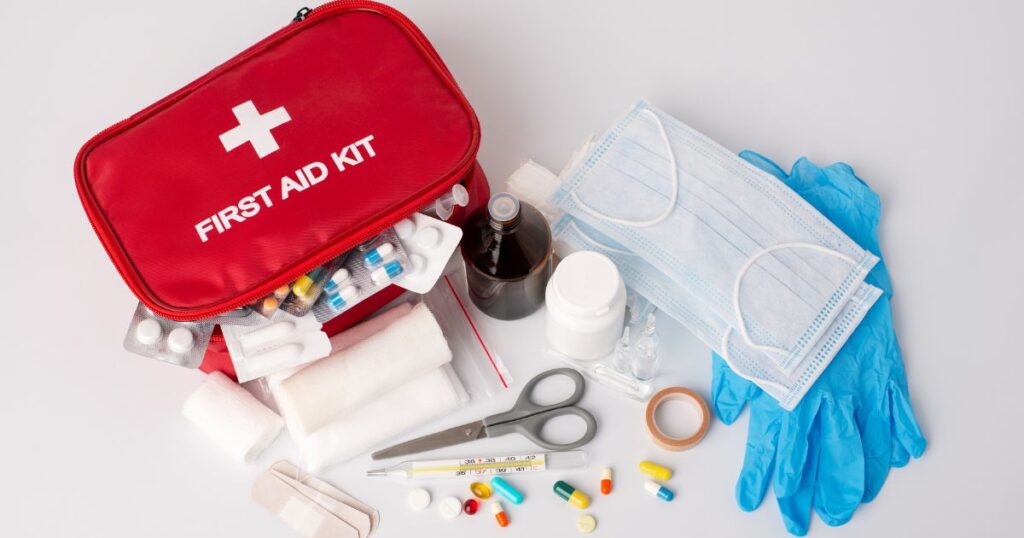
If a surgeon accidentally nicks or punctures an organ while performing liposuction, immediate first aid steps typically include:
- Stopping the procedure
- Putting pressure on the wound to control bleeding
- Closing or suturing any holes, tears, or lacerations
- Calling an emergency trauma surgery team if it is a critical injury
- Getting imaging tests like an ultrasound, CT scan, or MRI to assess damage
- Admitting the patient for post-op monitoring and corrective surgery
- Administering IV antibiotics to prevent infection
- Providing organ support like a respirator for lung injuries
- Transfusing blood or IV fluids if bleeding is extensive
- Repeating imaging tests in the next few days to ensure no delayed issues
While most mild organ injuries heal without complications, some may need stitches, drainage, or removal of damaged tissue. Thankfully, deaths are rare with prompt care.
Long-Term Outcomes After Organ Damage During Liposuction – What to Expect?
In many cases, the injured organ heals completely without any permanent adverse effects. However, this depends on the severity and extent of damage.
Possible long-term consequences if the liposuction-related organ injury is extensive include:
| Type of Organ Injured | Possible Long-Term Outcomes | Recovery Needs |
| Intestines | Abdominal hernia, bowel obstruction, fistulas | Further surgery, monitoring |
| Liver | Impaired liver function, jaundice | Regular blood work |
| Kidney | Chronic kidney disease, renal dysfunction | Check kidney parameters |
| Spleen | Impaired immunity, infections | Antibiotic prophylaxis |
| Lung | Restricted breathing, recurrent infections | Pulmonary function tests |
| Blood vessels | Poor circulation, loss of tissue | Wound care, necrosis debridement |
| Abdominal wall | Bulges, hernia | Hernia belt, surgery if severe |
| Multiple organs | Sepsis, septic shock | ICU care, organ support |
While major issues are unlikely, patients may require long-term follow-ups to ensure complete recovery following intraoperative organ damage events. The good news is a proper technique by an expert surgeon protects against such trauma. “Thigh Liposuction: Cellulite Eradication?” is a procedure where doctors remove fat from your thighs to reduce cellulite. It’s like vacuuming out the unwanted fat to make your skin smoother. Liposuction Fat Departure is a medical procedure where doctors use special tools to remove extra fat from your body. It’s like a vacuum cleaner for unwanted fat!
Can liposuction damage organs? – The Takeaway
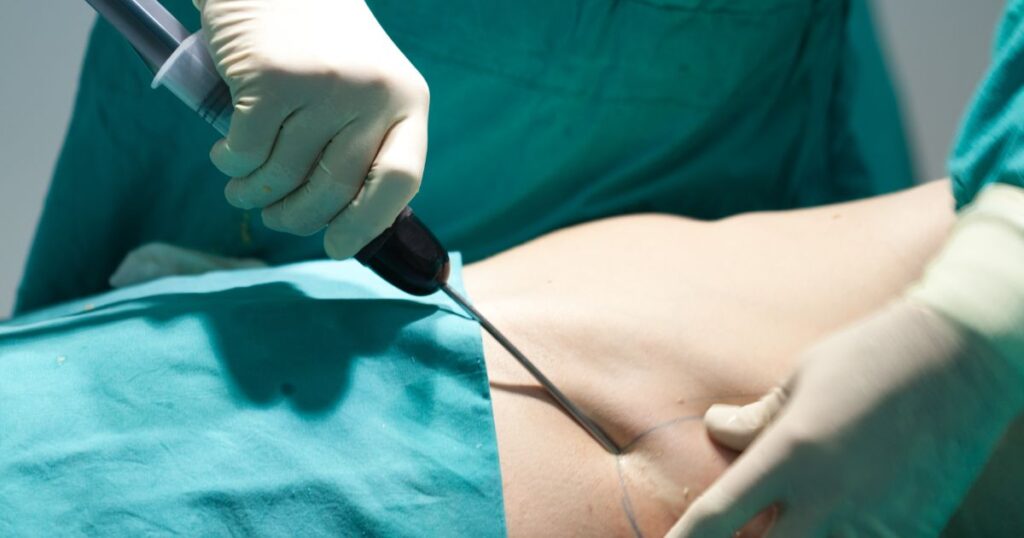
The possibility of liposuction causing accidental damage to internal organs like the intestines, liver, kidneys, or lungs does exist but is very low at less than 1%. Skilled plastic surgeons rely on precise techniques and planned surgical pathways to avoid penetrating or perforating adjacent tissue and organs.
Seeking care from a reputable surgeon lowers such intraoperative risks drastically during your liposuction procedure. Being aware and acting promptly if any organ injury happens is also key to reducing the chances of lasting effects. So be sure to learn the early warning signs.
Book a Consultation with Dr.Tarek Bayazid , Best Plastic Surgeon in Dubai
Expertise matters when considering a procedure like liposuction involving deep tissue disruption near organs. Choose your surgeon carefully.
To discuss your goals and ensure the highest safety standards for optimal outcomes from liposuction or other body contouring procedures, call +971 56 399 7271 or email drtarekbayazid@gmail.com to book your appointment with a world-class plastic surgeon – Dr Tarek Bayazid in Dubai.
5 Essential FAQs Related to Organ Damage and Liposuction
Below are 5 top questions patients commonly ask about liposuction’s safety risks concerning internal organs:
Which body areas pose the highest risk of organ damage during liposuction?
Liposuction procedures on the abdomen, sides, and lower back carry maximum risks of injuring organs like the intestines, kidneys, liver, or spleen. Chest liposuction also requires extra care being close to the lungs.
What stops surgeons from damaging organs during liposuction?
Surgeons rely on in-depth anatomical knowledge, pre-op imaging, surgical guidelines, and controlled instrument handling to remain in the subcutaneous fat layer without penetrating deeper near organs.
How is organ damage ruled out after liposuction?
Doctors routinely check vitals, wound sites, and fluid drainage volumes and order imaging tests for patients showing any signs suggesting a possible organ injury post-liposuction for prompt diagnosis.
What are the early symptoms of internal organ damage following liposuction?
See your plastic surgeon if you have increasing pain, swelling, drainage, or bleeding from wounds, dizziness, shortness of breath, abdominal rigidity or fever – as these may indicate organ damage.
Can laser lipo damage organs?
Laser liposuction carries a small risk of organ damage, comparable to traditional liposuction. Surgical errors are still possible despite the precision of the procedure.
